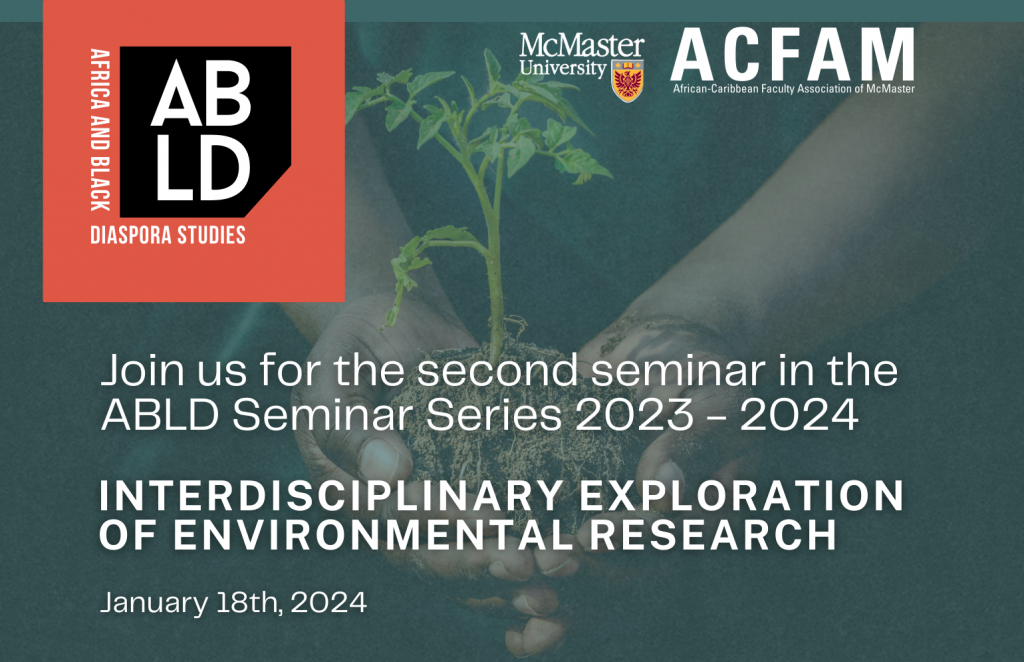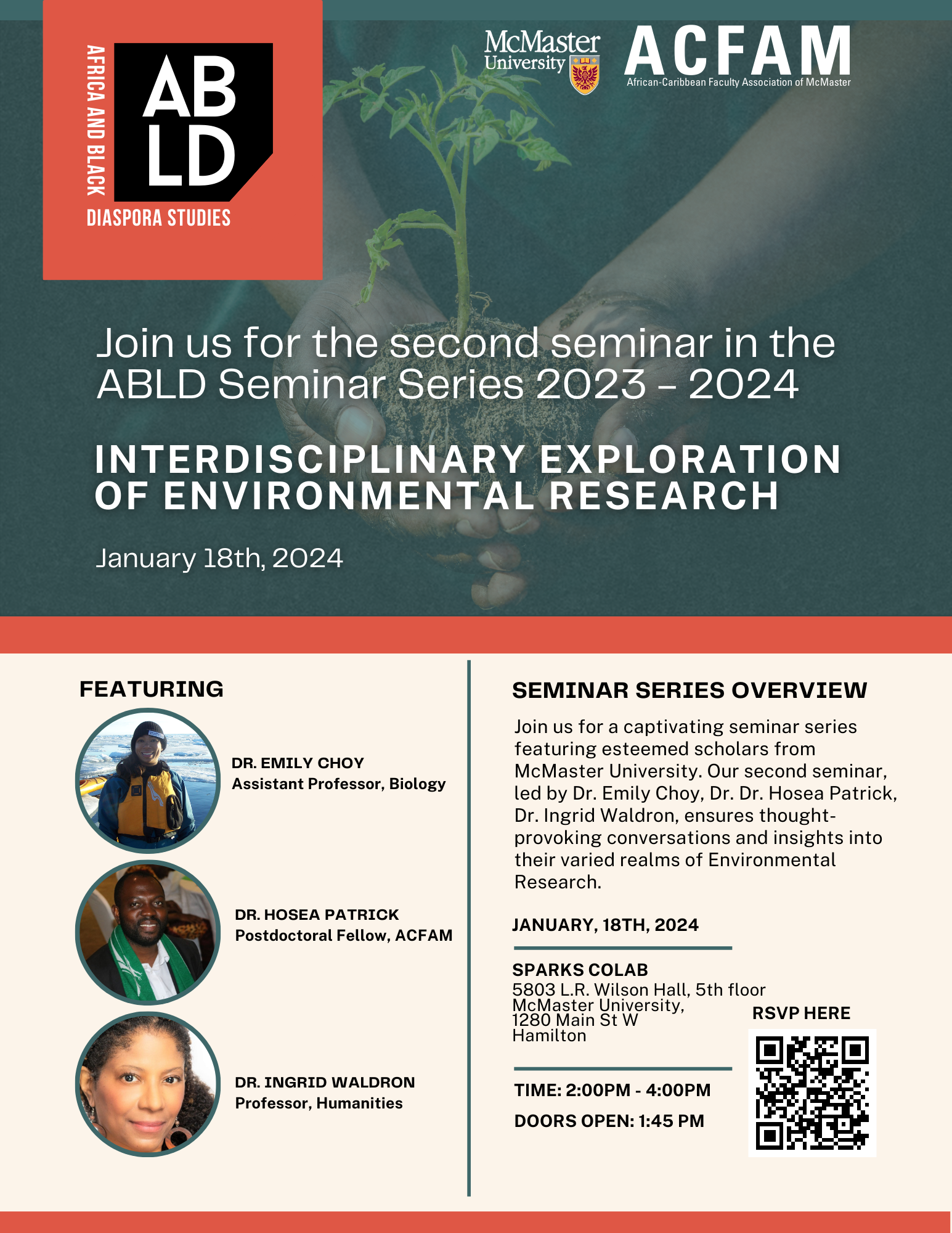Seminar series spotlights vital issues from multiple perspectives

Ingrid Waldron is an expert on environmental racism and ecological violence. Emily Choy studies the effects of climate change on seabirds and marine life. Hosea Patrick’s research focuses on Africa, African systems and the implications of climate change for African communities.
All three scholars will take the stage at a seminar this week to share their insights and research on environmental issues.
The event is part of a monthly seminar series at McMaster that aims to forge stronger ties between students, community members, and Black scholars from across disciplines.
The ABLD Seminar Series, featuring researchers and teachers in African and Black Diaspora Studies, explores key issues — environmental research, race-based data collection and the experiences of emerging scholars — from crossdisciplinary perspectives.
Created with the African and Caribbean Faculty Association of McMaster (ACFAM), the informal seminars will serve multiple purposes, says co-organizer and English and Cultural Studies Professor Daniel Coleman.
“We’ve had more than 20 Black scholars join faculties around campus over the past few years, and we want to help them get to know the crossdisciplinary community at McMaster,” he says.
“Give them opportunities to talk about their teaching and research priorities, and to build a growing sense of community based on what we have in common.”
The first seminar of the year, being held today, Thursday Jan. 18, will focus on environmental research. Waldron, the HOPE Chair of Peace and Health in the Faculty of Humanities, will be joined by Biology professor Emily Choy and Patrick, who recently joined McMaster as a postdoctoral fellow.
 What: ABLD Seminar Series: An interdisciplinary Exploration of Environmental Research
What: ABLD Seminar Series: An interdisciplinary Exploration of Environmental Research
When: Thursday Jan. 18, 2 p.m.
Where: Sparks CoLab, 5803 L.R. Wilson Hall, 5th floor
Click here for information or to register
Coleman hopes the seminars will make it easier for Black students to connect with and learn more about faculty members, and for scholars to build relationships with Black communities in the area, connecting them with the work being done on campus.
“Imagine a student on campus wondering who’s doing what, who might I work with on a project that interests me,” he says. “It’s a chance for students and staff from across campus to meet faculty members and see what their interests are.”
Patrick, whose work at McMaster includes studying how to create an interdisciplinary African and Black Diaspora Studies institute, says the seminar series is part of the bedrock for that project.
“We want to know what our colleagues are doing and how we can synthesize our work,” he says. “We want to come up with a structure whereby we can pull resources together to look at the same issue from different dimensions.”
For example, he says: A scholar from engineering might be exploring how to use technology to mitigate climate change.
“In social sciences we look at it and ask ourselves, ‘what is the human implication of your engineering research?’ And someone from policy will look at it and ask, ‘What is the governmental implication of this work?’ My role is to find how do we create this structure whereby colleagues can share their research and look at it from different points of view.”
The next event in the series, on Feb. 7, will focus on race and data collection — and the problems arising from insufficient race-based data in research.
The March 27 seminar will feature emerging scholars and their perspectives.

